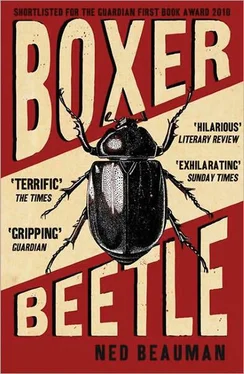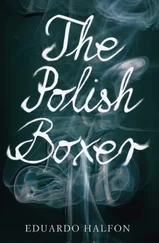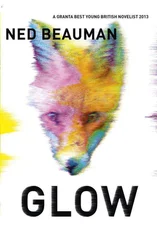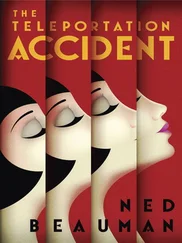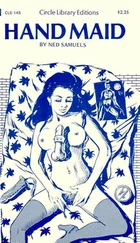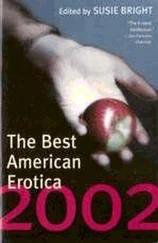‘I thought you were dressing,’ said the voice.
‘And now I’m dressed. I really wish you’d telephoned first, Evelyn.’
‘Well, I knew you’d be in, didn’t I, brother? You never do anything.’
‘Actually I’m very busy and I have to go out in a moment or I shall be late. Why don’t we just have dinner this evening?’
‘No.’
‘Is dinner too bourgeois?’
‘I wanted to see your wonderfully grown-up new flat. It’s a bit poky, isn’t it? Oh, at least you’ve brought that picture with you. The purchase of that picture is the only concession to good taste you have ever made in your life.’
‘You just like it because Mother says it’s horrible.’
‘A horribly lazy pastiche of the Rembrandt, yes, but apart from that quite striking.’ Sinner heard footsteps. ‘Now, what’s this room?’
‘Don’t go in there,’ said Erskine.
‘Why not?’ said the voice, and the door of the bedroom opened.
Erskine’s sister was twenty-two years old, pretty, with wavy brown hair pinned up behind her head to reveal a dull shine across her cheekbones like old scuffed velvet. She wore a sylphine green dress and lugged behind her a battered antique umbrella with brass fittings that could have sheltered a small village from a mortar attack. Her eyebrows were at a permanent ironic tilt, as if she were waiting patiently for the rest of the world to throw down its cigarette, abandon the charade and admit how absolutely ridiculous it was.
‘Who on earth is this in your bed?’ she said.
‘That’s not my bed. That’s the spare bed.’
‘Who is it?’
‘Oh, he’s my valet. He’s been ill.’
‘Phippy! How long have you had a valet? How absurd! And he looks like a Jew!’ She said this with surprise, not disdain.
‘He is not a Jew. His name is Roach. If one takes a flat one must take a valet.’
‘Boy, are you really my brother’s valet?’
Sinner waited a long time before he replied, enjoying Erskine’s pleading eyes and gritted teeth. At last he said, ‘Yes, ma’am.’ Erskine slackened as if shot dead.
‘What’s wrong with you?’
‘He’s got kidney stones,’ said Erskine.
‘What a bore. Where did my brother find you?’
‘I absolutely must go, Evelyn,’ said Erskine. ‘Come along and I’ll find you a cab.’ Evelyn wasn’t, of course, allowed a flat of her own, so when she was in London she usually stayed at the house of her friend Caroline Garlick near Gloucester Road. ‘Let’s say eight o’clock at the Ravilious, shall we? I’ll book us a table.’
‘I can’t, I’m busy.’
‘With whom? Is Mother making you have dinner with the Bruiselands? She mentioned they were up in town.’
‘With your old friend Morton, actually.’
‘You’re still going about with Morton?’ William Erskine, their father, had briefly forbidden Evelyn to speak to Morton after discovering that Morton had attached himself to the British Union of Fascists, an organisation which he believed gave fascism a bad name; but later he had relented.
‘I don’t know what you mean by that, dear brother, but you ought to be pleased. Remember that, whatever your pettier differences, he shares both your college scarf and your politics. Goodbye, Roach.’
They went out. Sinner got up, put on a dressing gown and looked around the flat. It was clean, well lit and not too cold, but it was also bare even compared to his parents’ flat in Spitalfields: there were no ornaments and only a single picture, the one that Evelyn had presumably been talking about earlier.
Seven or eight doctors with black coats and big sideburns were crowded around a cadaver like ravens around a piece of meat. The cadaver was jaundiced but still quite well muscled, the tendons in its right thigh exposed by a hanging flap of skin and rendered in detail. A cloth was draped across its groin but you could see the bulge beneath. All around was gloom, like the morgue at St Panteleimon’s, and indeed the cadaver’s face did remind Sinner a little of Ollie Renhsaw. He turned quickly away from the painting, feeling that if he looked any longer the doctors, if they really were doctors, would fall upon the body and devour it. But then, strolling into the bathroom for a piss — what luxury not to be using a bedpan like at St Panteleimon’s — he found himself staring into a mirror, which, if anything, was even worse than the painting. It was weeks since he’d seen his own reflection in anything clearer than a grimy window, and he understood now why the bouncers hadn’t let him into the Caravan. He didn’t want to look like this.
Apart from the sitting room, the bathroom and the two bedrooms, there was just a small kitchen and a mysterious sixth room with a locked door, presumably Erskine’s laboratory. The lock was heavy but he could probably break the door off its hinges if he wanted — maybe not today, but certainly after a bit more rest and a bit more liver and onions. He wondered where he could go to pawn whatever it was that Erskine kept in there. Fifteen minutes later, as he stood at the window looking down at the street and thinking how strange it was that he’d ended up here, there was another knock at the front door of the flat. Sinner opened it. Evelyn had come back, without her brother.
‘I got the cab to take me in a circle,’ she said.
‘Why?’
‘Because I wanted to know if you were really Philip’s valet. You’re not, are you?’ She had a mannish way of jutting her chin forward when she was daring someone to contradict her.
‘I don’t know. An hour ago I was a stableboy.’
‘I knew it. If one of his servants really ever looked as deathly as you he wouldn’t go within a mile of them, let alone put them up in his flat. What do you really do?’
‘I was a boxer.’
‘You’re rather short for a boxer.’
‘I punch pretty hard for a short bloke. What are you?’
‘I intend to be a composer. Do you like avant-garde music?’
Sinner shrugged.
‘I’m quite sure you would,’ said Evelyn. ‘I can almost invariably tell.’ Evelyn was aware that she didn’t completely convince when she made knowing remarks like this, especially to someone like Sinner with that gaze of his, but she didn’t see how her repartee was supposed to gain any poise when she had absolutely nobody to practise on at home. If she tried to deliver a satirical barb at dinner her father would just stare at her until she wanted to cry. And Caroline Garlick’s family were lovely but the trouble was they laughed rather too easily, rather than not at all — it wasn’t quite the Algonquin Round Table. She was convinced that if she had been allowed to go to Paris she would have had lots of practice, and of course met lots of people like this boy, but as it was, if she ever met any genuine intellectuals — or any beyond their neighbour Alistair Thurlow — they would probably think she was hopelessly childish. For about a week she’d tried to take up heavy drinking, since heavy drinkers were so often reputed to be terrific conversationalists, but most of the time she just fell asleep.
Evelyn recovered herself and smiled. ‘You know, my brother is an extraordinary character in many ways. I never would have known he had the courage. He gets through twenty-six years with such olympic diffidence and then suddenly it’s an ordinary Thursday and one discovers a concubine in his bed. I don’t expect you mind if I call you that?’
‘What does it mean?’
‘You don’t, then.’
‘What does it mean?’
‘What it means is that I have never had any illusions about my brother’s real—’
‘You don’t call me names, you stuck-up bitch,’ said Sinner, and turned away from her. Immediately he heard a swish and felt a hard blow to the back of his head. He turned back. Evelyn had clonked him with the umbrella.
Читать дальше
